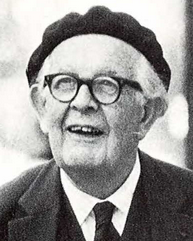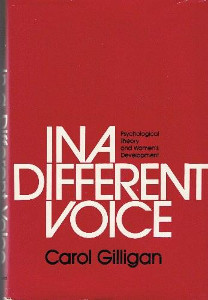Related Research Articles

Educational psychology is the branch of psychology concerned with the scientific study of human learning. The study of learning processes, from both cognitive and behavioral perspectives, allows researchers to understand individual differences in intelligence, cognitive development, affect, motivation, self-regulation, and self-concept, as well as their role in learning. The field of educational psychology relies heavily on quantitative methods, including testing and measurement, to enhance educational activities related to instructional design, classroom management, and assessment, which serve to facilitate learning processes in various educational settings across the lifespan.

Morality is the differentiation of intentions, decisions and actions between those that are distinguished as proper (right) and those that are improper (wrong). Morality can be a body of standards or principles derived from a code of conduct from a particular philosophy, religion or culture, or it can derive from a standard that a person believes should be universal. Morality may also be specifically synonymous with "goodness" or "rightness".

Jean William Fritz Piaget was a Swiss psychologist known for his work on child development. Piaget's theory of cognitive development and epistemological view are together called "genetic epistemology".
Lawrence Kohlberg was an American psychologist best known for his theory of stages of moral development.

Carol Gilligan is an American feminist, ethicist, and psychologist, best known for her work on ethical community and ethical relationships.
Moral reasoning is the study of how people think about right and wrong and how they acquire and apply moral rules. It is a subdiscipline of moral psychology that overlaps with moral philosophy, and is the foundation of descriptive ethics.
Moral psychology is a field of study in both philosophy and psychology. Historically, the term "moral psychology" was used relatively narrowly to refer to the study of moral development. Moral psychology eventually came to refer more broadly to various topics at the intersection of ethics, psychology, and philosophy of mind. Some of the main topics of the field are moral judgment, moral reasoning, moral sensitivity, moral responsibility, moral motivation, moral identity, moral action, moral development, moral diversity, moral character, altruism, psychological egoism, moral luck, moral forecasting, moral emotion, affective forecasting, and moral disagreement.
Lawrence Kohlberg's stages of moral development constitute an adaptation of a psychological theory originally conceived by the Swiss psychologist Jean Piaget. Kohlberg began work on this topic as a psychology graduate student at the University of Chicago in 1958 and expanded upon the theory throughout his life.
In psychology, developmental stage theories are theories that divide psychological development into distinct stages which are characterized by qualitative differences in behavior. Developmental stage theories are one type of structural stage theory.
In moral psychology, social intuitionism is a model that proposes that moral positions are often non-verbal and behavioral. Often such social intuitionism is based on "moral dumbfounding" where people have strong moral reactions but fail to establish any kind of rational principle to explain their reaction.
Character education is an umbrella term loosely used to describe the teaching of children and adults in a manner that will help them develop variously as moral, civic, good, mannered, behaved, non-bullying, healthy, critical, successful, traditional, compliant or socially acceptable beings. Concepts that now and in the past have fallen under this term include social and emotional learning, moral reasoning and cognitive development, life skills education, health education, violence prevention, critical thinking, ethical reasoning, and conflict resolution and mediation. Many of these are now considered failed programs, i.e. "religious education", "moral development", "values clarification".

In a Different Voice: Psychological Theory and Women's Development is a book on gender studies by American professor Carol Gilligan, published in 1982, which Harvard University Press calls "the little book that started a revolution".
The Defining Issues Test is a component model of moral development devised by James Rest in 1974. The University of Minnesota formally established the Center for the Study of Ethical Development as a vehicle for research around this test in 1982. The Center relocated to larger premises within the University of Alabama and is now located in Capital Hall; for more information, visit the center website. Because it is not possible to score DIT-1 and DIT-2 personally, the Center of Ethical Development at the University of Alabama offers scoring to scholars and researchers worldwide.

Positive adult development is a subfield of developmental psychology that studies positive development during adulthood. It is one of four major forms of adult developmental study that can be identified, according to Michael Commons; the other three forms are directionless change, stasis, and decline. Commons divided positive adult developmental processes into at least six areas of study: hierarchical complexity, knowledge, experience, expertise, wisdom, and spirituality.
Moral development focuses on the emergence, change, and understanding of morality from infancy through adulthood. Morality develops across a life span in a variety of ways and is influenced by an individual's experiences and behavior when faced with moral issues through different periods of physical and cognitive development. Morality concerns an individual's reforming sense of what is right and wrong; it is for this reason that young children have different moral judgment and character than that of a grown adult. Morality in itself is often a synonym for "rightness" or "goodness." It also refers to a specific code of conduct that is derived from one's culture, religion, or personal philosophy that guides one's actions, behaviors, and thoughts.
Moral foundations theory is a social psychological theory intended to explain the origins of and variation in human moral reasoning on the basis of innate, modular foundations. It was first proposed by the psychologists Jonathan Haidt, Craig Joseph, and Jesse Graham, building on the work of cultural anthropologist Richard Shweder. It has been subsequently developed by a diverse group of collaborators and popularized in Haidt's book The Righteous Mind. The theory proposes six foundations: Care/Harm, Fairness/Cheating, Loyalty/Betrayal, Authority/Subversion, Sanctity/Degradation, and Liberty/Oppression. Its authors remain open to the addition, subtraction, or modification of the set of foundations.
Role-taking theory is the social-psychological concept that one of the most important factors in facilitating social cognition in children is the growing ability to understand others’ feelings and perspectives, an ability that emerges as a result of general cognitive growth. Part of this process requires that children come to realize that others’ views may differ from their own. Role-taking ability involves understanding the cognitive and affective aspects of another person's point of view, and differs from perceptual perspective taking, which is the ability to recognize another person's visual point of view of the environment. Furthermore, albeit some mixed evidence on the issue, role taking and perceptual perspective taking seem to be functionally and developmentally independent of each other.
Darcia Narvaez is a Professor of Psychology Emerita at the University of Notre Dame who has written extensively on issues of character, moral development, and human flourishing.
Moral blindness, also known as ethical blindness, is defined as a person's temporary inability to see the ethical aspect of a decision they are making. It is often caused by external factors due to which an individual is unable to see the immoral aspect of their behavior in that particular situation.
Moral emotions are a variety of social emotion that are involved in forming and communicating moral judgments and decisions, and in motivating behavioral responses to one's own and others' moral behavior.
References
- ↑ Rest, J.R., Narvaez, D., Bebeau, M. & Thoma, S. (1999). Postconventional Moral Thinking: A Neo-Kohlbergian Approach. Mahweh, New Jersey: Lawrence Erlbaum Associates.
{{cite book}}: CS1 maint: multiple names: authors list (link) - ↑ Her, Lucy Y. (20 July 1999). "Obituaries: James R. Rest, 58, professor". Minneapolis Star Tribune.
- ↑ Frederickson, H. George; Ghere, Richard K. (2016-07-22). Ethics in Public Management. Routledge. p. 72. ISBN 978-1-315-49776-1.
At a later date, James Rest developed a written multiple choice alternative to Kohlberg's Moral Judgment Interview, the Defining Issues Test (DIT) (1993), which became the focus of numerous research publications.
- ↑ Pascarella & Terenzini, E.T. & P. (1991). How college affects students: Findings and insights from twenty years of research . San Francisco: Jossey-Bass.
- ↑ King, P.M.; Mayhew, M.J. (2002). "Moral Judgment Development in Higher Education: Insights from the Defining Issues Test". Journal of Moral Education. 31 (3): 247–270. doi:10.1080/0305724022000008106. S2CID 59368646.
- ↑ McClosky, H.; Brill, A. (1983). "Moral Judgment and antisocial behavior in early adolescence". Journal of Applied Developmental Psychology. 4 (2): 189–199. doi:10.1016/0193-3973(83)90006-0. S2CID 144729466.